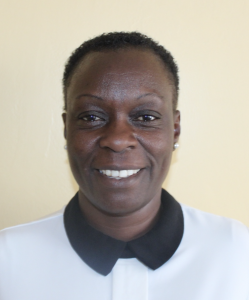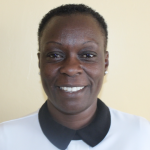The Kakunga Girls High School, comprised of 400 students and 50 staff members, faces closure by the local government if they don't have a reliable water source. Their hand-dug well on campus runs dry, and their rain tank is insufficient for the number of users. At times, the school administration is forced to purchase water from the community using the school's meager budget, but it steals from the girls' other educational needs. Time is of the essence at this school.

Field Officer Mary Afandi expands on why their water sources are insufficient. "The school has [a] plastic [rain] tank, which is not reliable because when there is no rain, the tank is empty. The protected hand-dug well (seen below) is seasonal, and its recharge [rate] is very slow. The school cannot depend on it. The water [they] buy from the municipal costs them a lot of money per week. Which the school strains to pay."

32-year-old Teacher Jepkoech Koni, seen below, shared, "The current situation of water scarcity affects me, in that I keep worrying how to source water for school [as] the school funds are not even sufficient. Water from unknown sources can cause [health] related problems."

As Jepkoech said, when they have no water on campus, they are forced to buy water from vendors. However, there's no way to know the source from which it's been collected, and students are often sick from water-related illnesses.
"The school has a boarding section which is always affected [by] stomaches. The students are taken to a nearby dispensary, making them absent [from] class. This affects their academic performance, and money spent to buy medicines is a lot," continued Mary.
There is a high cost associated with water-related illnesses. Medication and hospitalization are expensive. The time missed in class comes at an equally high price, potentially affecting the quality of their futures.
Another challenge in this crisis is the inability to bathe or clean their facilities. 16-year-old Sharon N., pictured below, shared, "Personally [I] am affected [by the] current situation because sometimes when I want to take a bath, I find that there is no water. As a boarder, [I] am suffering because [I] am supposed to be clean always. More so, girls are supposed to take a bath twice per day."

Installing the well will enable teachers like Jepkoech to pour their energy into educating the students instead of scrounging for water sources and dealing with the repercussions of unsafe water. Students like Sharon will no longer suffer from a lack of hygiene, increasing their self-esteem and thus giving them the confidence to work towards a brighter future.
Water at schools is unique, which is why we need unique solutions.
The Proposed Solution, Determined Together...
At The Water Project, everyone has a part in conversations and solutions. We operate in transparency, believing it benefits everyone. We expect reliability from one another as well as our water solutions. Everyone involved makes this possible through hard work and dedication.
In a joint discovery process, community members determine their most advantageous water solution alongside our technical experts. Read more specifics about this solution on the What We're Building tab of this project page. Then, community members lend their support by collecting needed construction materials (sometimes for months ahead of time!), providing labor alongside our artisans, sheltering and feeding the builders, and supplying additional resources.
Water Access for Everyone
This water project is one piece in a large puzzle. In Kenya, Sierra Leone, and Uganda, we're working toward complete coverage of reliable, maintained water sources that guarantee public access now and in the future within a 30-minute round trip for each community, household, school, and health center. One day, we hope to report that this has been achieved!
Training on Health, Hygiene & More
With the community's input, we've identified topics where training will increase positive health outcomes at personal, household, and community levels. We'll coordinate with them to find the best training date. Some examples of what we train communities on are:
- Improved hygiene, health, and sanitation habits
- Safe water handling, storage & treatment
- Disease prevention and proper handwashing
- Income-generation
- Community leadership, governance, & election of a water committee
- Operation and maintenance of the water point
Handwashing Stations
Alongside each water source, we also provide two new gravity-fed handwashing stations that will allow everyone at the school to wash their hands without running water. Handwashing is so important to help prevent future water-related illnesses in the school community.
The student health club will maintain the stations, fill them with water, and supply them with soap (which we will teach the school community how to make during the training!).
VIP Latrines
In addition, we will construct two triple-door Ventilated Improved Pit (VIP) latrine blocks designed to prevent fecal disease transmission. Each latrine will have a cement floor, which is easy to use and clean regularly. Three doors will serve the girls, and three doors will serve the boys.
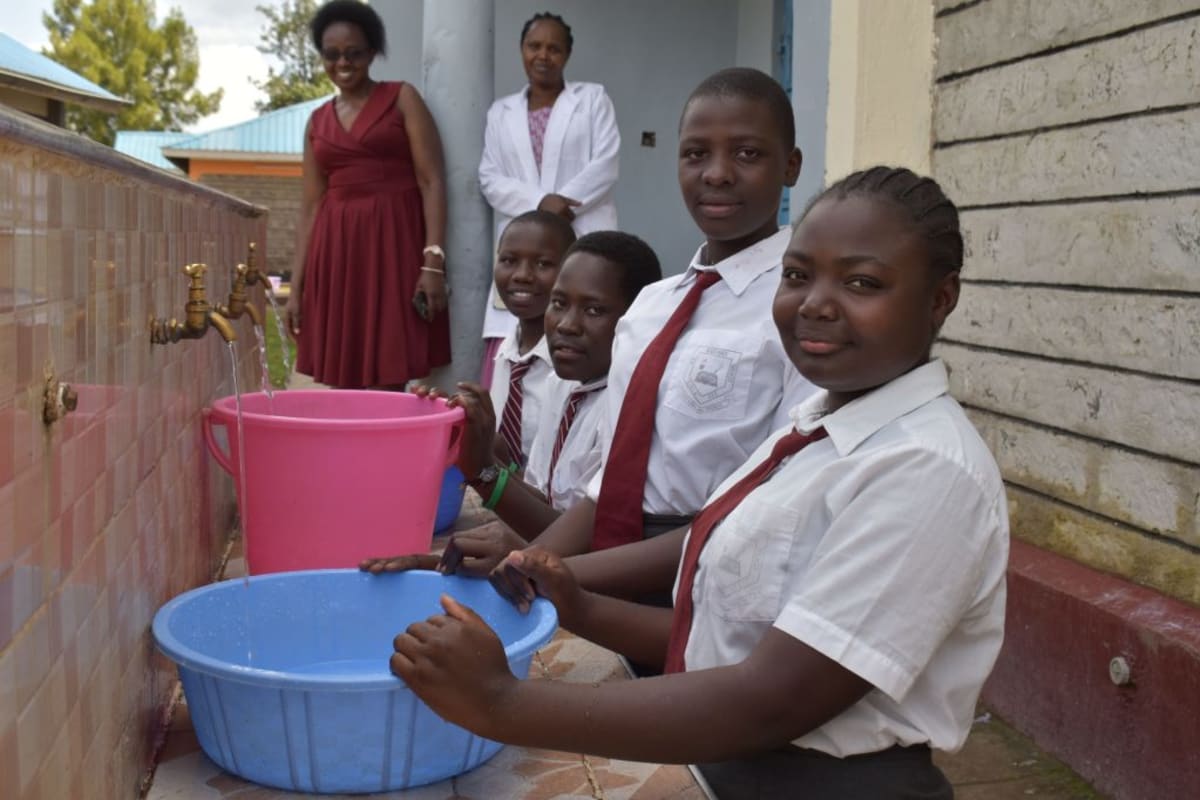

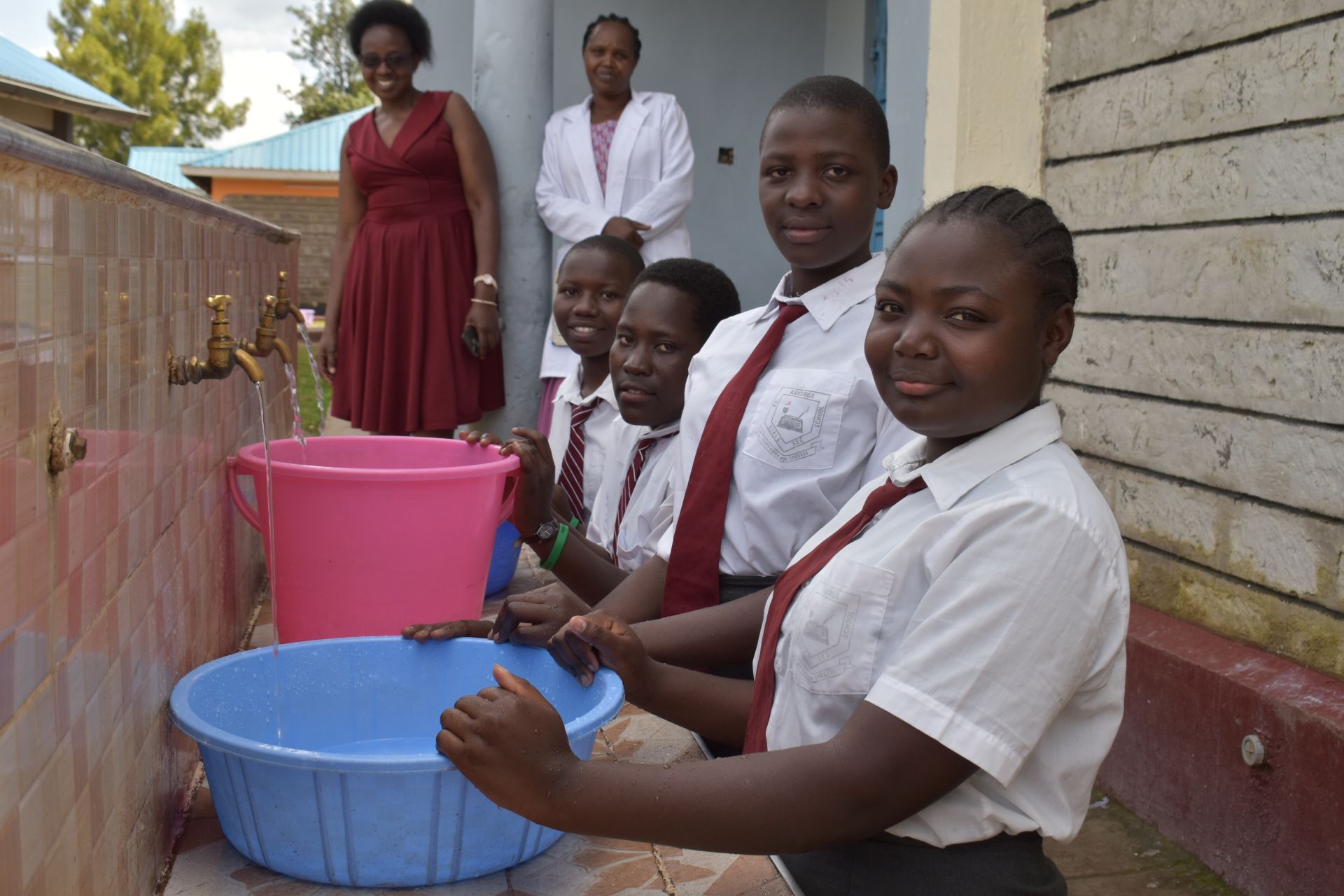
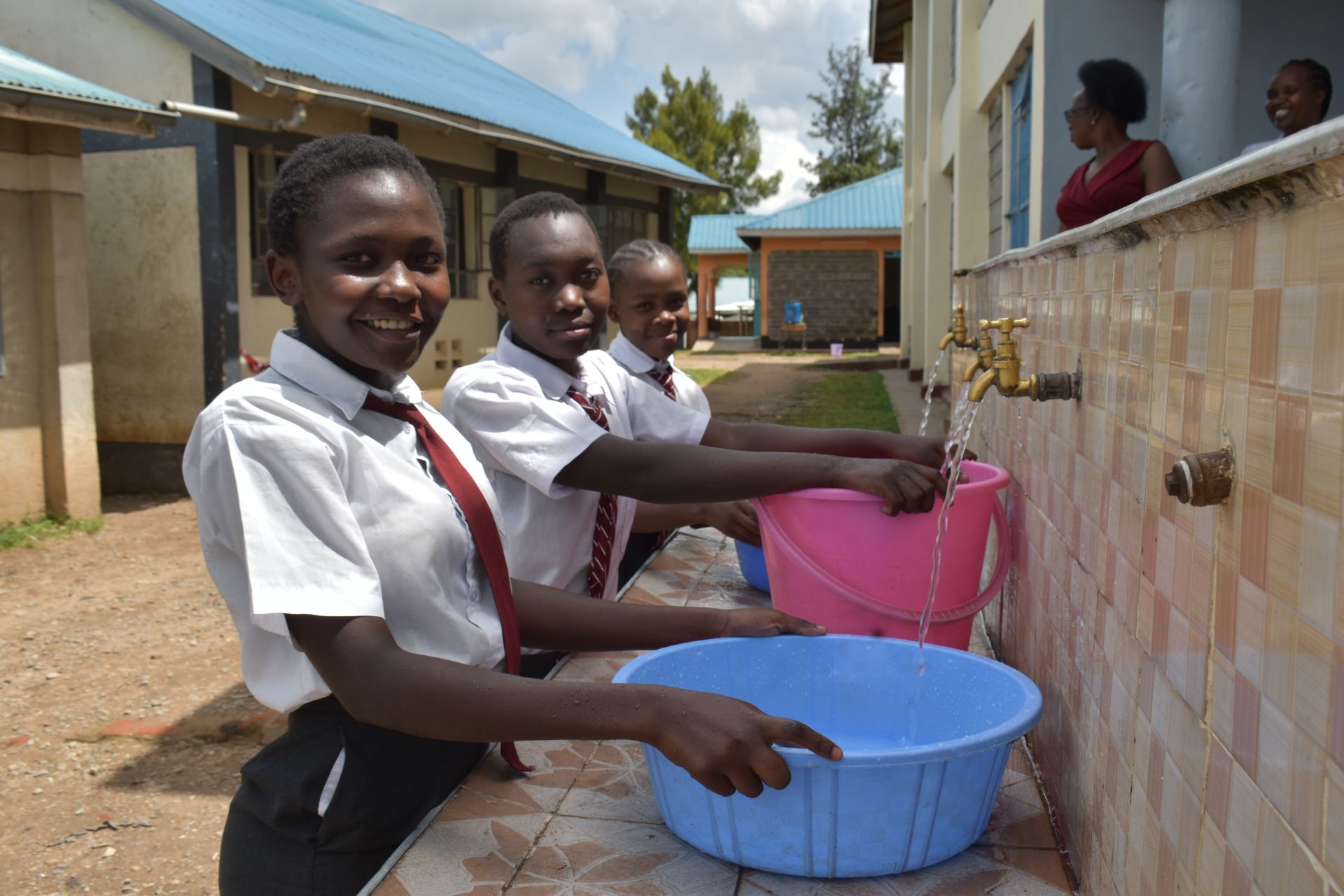
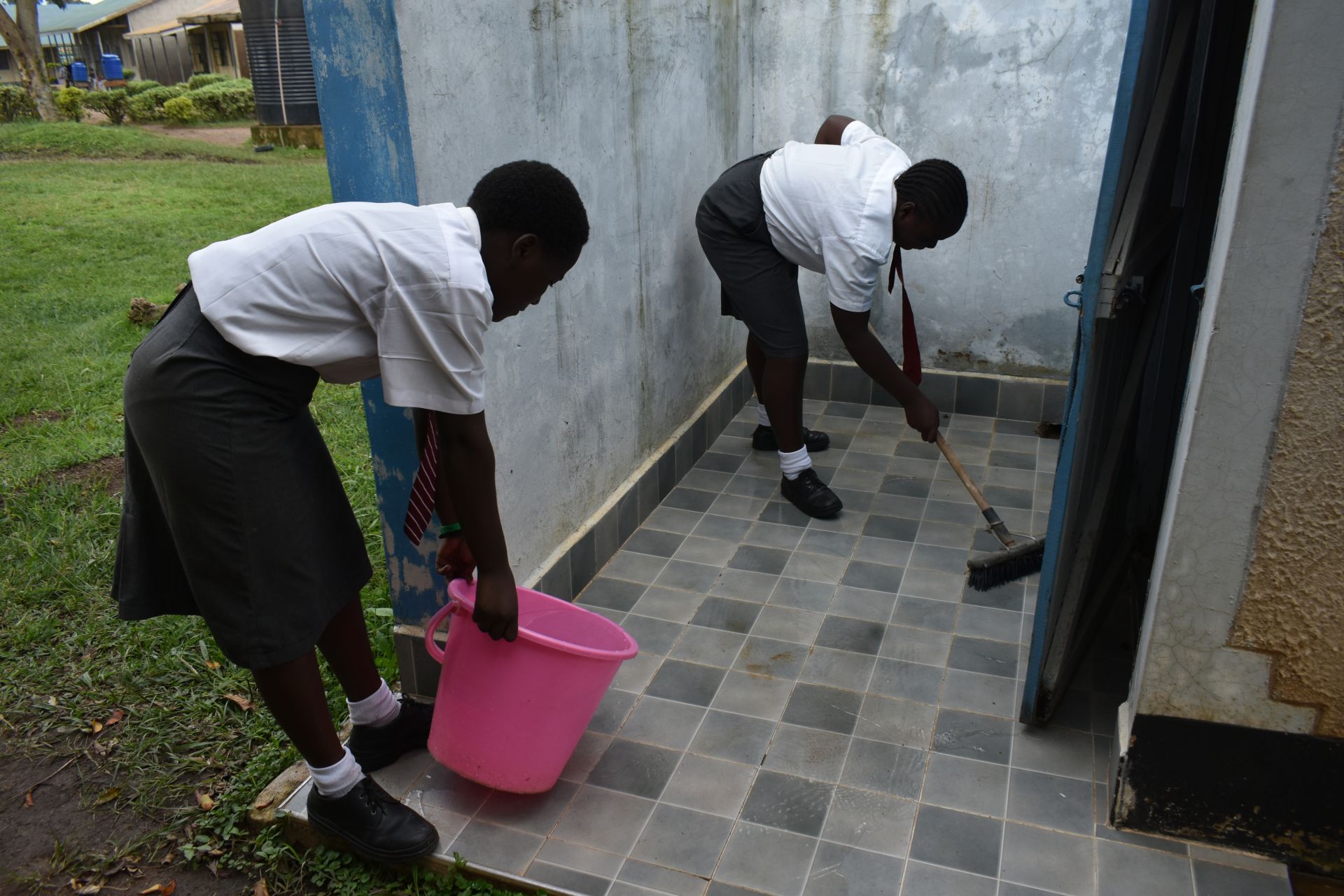
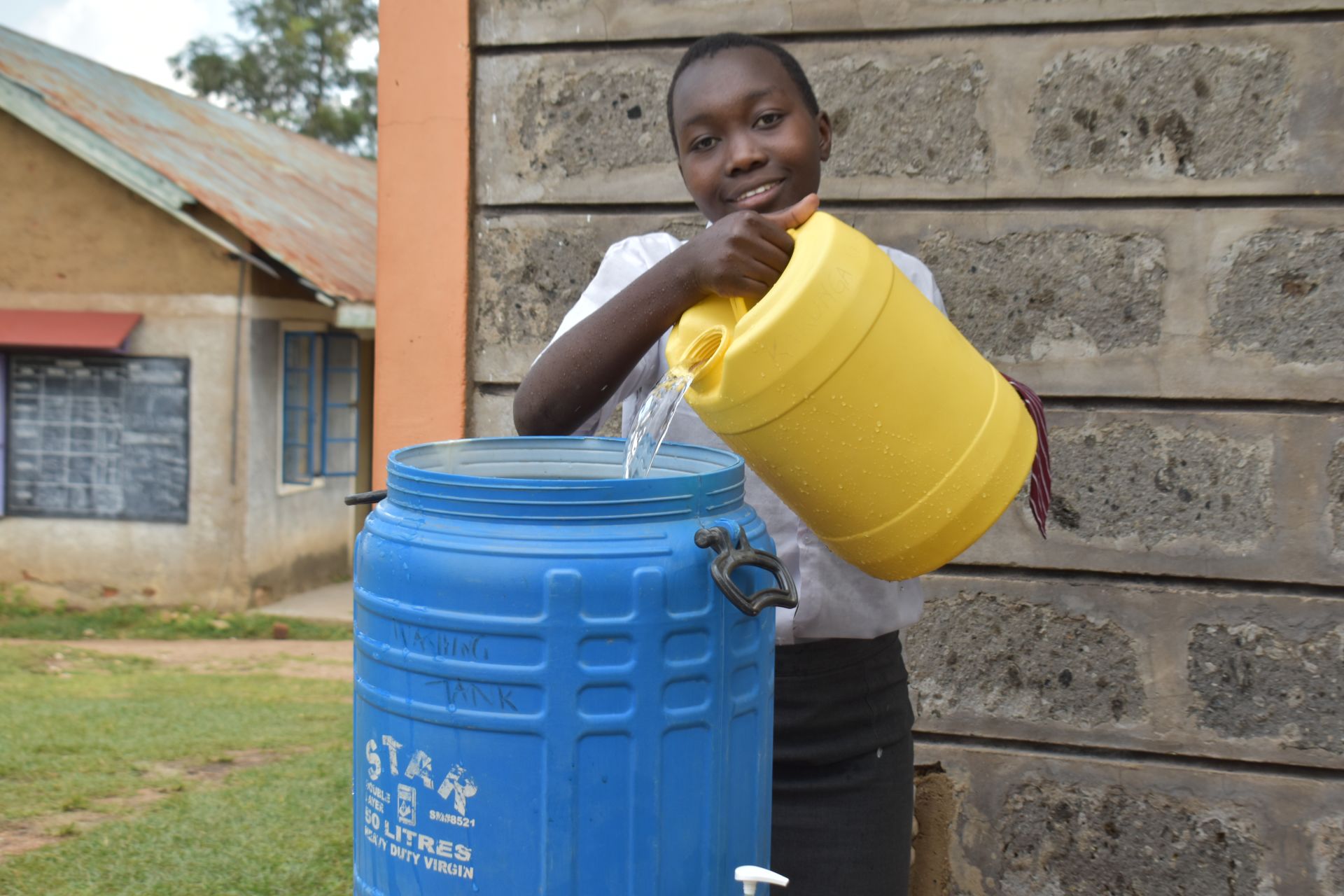

 Borehole Well and Hand Pump
Borehole Well and Hand Pump
 Rehabilitation Project
Rehabilitation Project












